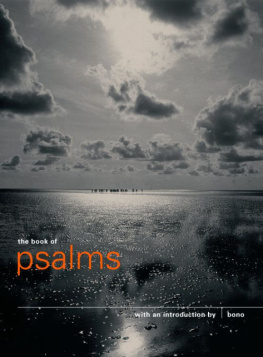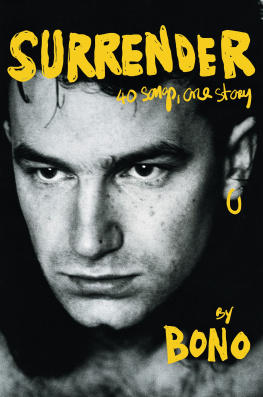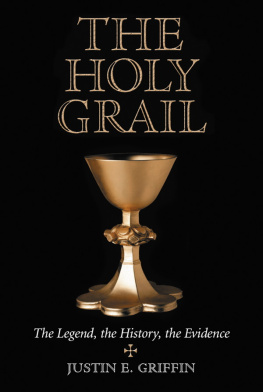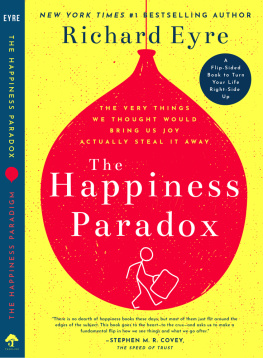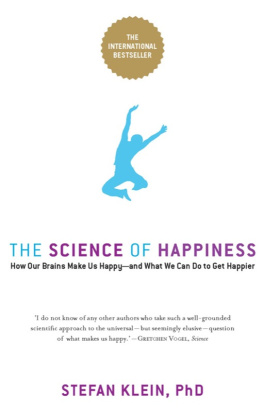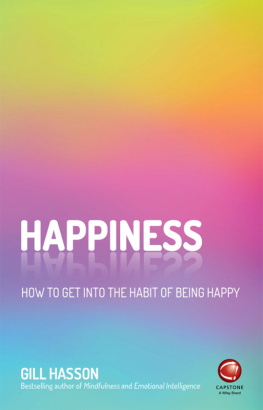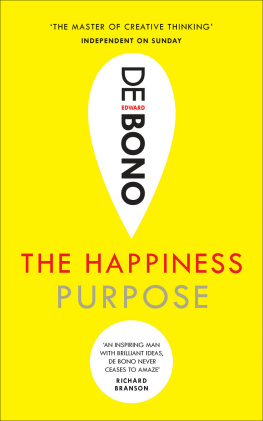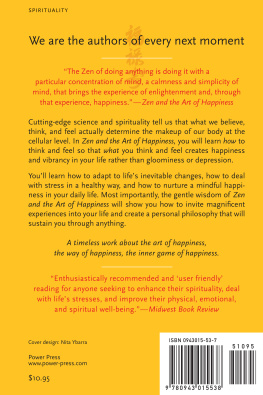You are advised to consult with your health care professional with regard to matters relating to your health, and in particular regarding matters that may require diagnosis or medical attention.
Copyright 2018 by Tim Bono, PhD
Cover design by Claire Brown. Illustration by Kyle Bean. Cover copyright 2018 by Hachette Book Group, Inc.
Hachette Book Group supports the right to free expression and the value of copyright. The purpose of copyright is to encourage writers and artists to produce the creative works that enrich our culture.
The scanning, uploading, and distribution of this book without permission is a theft of the authors intellectual property. If you would like permission to use material from the book (other than for review purposes), please contact permissions@hbgusa.com. Thank you for your support of the authors rights.
Grand Central Life & Style
Hachette Book Group
1290 Avenue of the Americas, New York, NY 10104
grandcentrallifeandstyle.com
twitter.com/grandcentralpub
First Edition: March 2018
Grand Central Life & Style is an imprint of Grand Central Publishing. The Grand Central Life & Style name and logo are trademarks of Hachette Book Group, Inc.
The publisher is not responsible for websites (or their content) that are not owned by the publisher.
The Hachette Speakers Bureau provides a wide range of authors for speaking events. To find out more, go to www.hachettespeakersbureau.com or call (866) 376-6591.
The photos of the student with the pen in her lips/teeth were taken by Scott Blessman.
The cartoon images Had a Bad Day/Good) were created by Vic Gainor.
The author photo is by Panit Tan.
Library of Congress Cataloging-in-Publication Data
Names: Bono, Tim, author.
Title: When likes arent enough : a crash course in the science of happiness / Tim Bono.
Other titles: When likes are not enough
Description: First Edition. | New York : Grand Central Life & Style, 2018.
Identifiers: LCCN 2017041758| ISBN 9781538743416 (hardback) | ISBN 9781549167485 (audio download) | ISBN 9781538728093 (ebook)
Subjects: LCSH: Self-actualization (Psychology) | Emotions. | Happiness. | BISAC: SELF-HELP / Personal Growth / Happiness. | PSYCHOLOGY / Emotions. | PSYCHOLOGY / Mental Health. | SELF-HELP / Personal Growth / Self-Esteem.
Classification: LCC BF637.S4 B657 2018 | DDC 158dc23
LC record available at https://lccn.loc.gov/2017041758
ISBNs: 978-1-5387-4341-6 (hardcover); 978-1-5387-2809-3 (ebook)
E3-20180208-JV-PC
To Linda, for opening the door
To Randy, for guiding my path
S hortly after I began writing this book I was having dinner with my friend James, who asked me what had inspired this project. I told him that I was writing this book to myselfthe young adult version of myselfto share the information I wish I had known in my late teens and early twenties. My transition to adulthood, I confessed, had been marked by anxiety, loneliness, and yearning. James was quick to empathize. His early adult years had been emotionally turbulent too. Wed both wrestled with heavy feelings of unhappiness, surrounded by friends who seemingly didnt. It wasnt until Id hit my midtwenties that I started to gain some insight into the nature of these experiences and feelingsand then only because Id set out on a career in psychology. Through my studies I eventually learned that these struggles and emotions are common in young adulthoodI hadnt been alone. And there were strategies available that could break open hope, optimism, and meaning in my life. I just hadnt had access to them. Neither had James.
Allow me to set the stage. I come from a large Italian family. Well, thats redundant. I come from an Italian family. I am one of seventy-five cousins just on my dads side. With so many relatives, we gather just about every week to celebrate someones birthday, graduation, or wedding. I have seen most of that extended family regularly throughout my life. We have a lot in common in the way of culture and traditions. But beyond our Mediterranean facial features and love for spedini and cannoli, there is a large variability in personalities and emotional statessomething I noticed even as a little kid. Some of my relatives are as kind, funny, and friendly as can be, like my Grandma Rosie, whose name matches her cheery disposition. She couldnt make it to the mailbox without greeting everyone she saw on the street with a smile and a wish for a beautiful day. Others (who shall remain nameless out of fear of Mafia retaliation) are as sad, downhearted, and bitter as you can imagine, including a few who spent their entire lives clinging to decades-old grudges, ultimately estranging themselves from the family altogether. Oh, woe is me was their constant refrain.
Though I had a mostly happy childhood, I seemed to fluctuate between the cheery dispositions of some family members and the melancholy of others. As I made my way into my late teens and early twenties, I found the ratio shifting, my emotions becoming dominated by despair. If I had an exam coming up, I would worry nonstop. If someone angered me, I could not let it go. If I didnt have plans on a Friday night, I would wallow in self-pity. When I considered how emotions like mine affected some of my family membersthe Woe is me typesI became resolved to halt the sweeping negativity that was invading my thinking and decision making. I didnt want to live my entire life like that. I wasnt sure what, if anything, could be done, but I at least had to find out if there was something that might turn things around.
From my undergraduate psychology coursework, I understood that emotion and behavior are partly determined by genetics. Considering how glum some of my relatives were, I recognized that some of my unhappiness may have been built into my DNA. However, my courses also taught me that genes do not determine our destiny. Our intentional behaviors and daily habitsthe parts of our life that we choose and controlcan interact with those genes to suppress or enhance their natural expression. This gave me hope. Perhaps I could find a way to quiet my gloomy thoughts and increase my happiness, even with the limitations I inherited genetically. This became my Holy Grail during my twenties.
My personal quest aligned perfectly with my professional aspirations. I was fortunate enough to be enrolled in a doctoral program in psychology at the time, which provided access to a wealth of science and the scholars in the field who could guide my inquiry. I started work toward my PhD when positive psychology, a field dedicated to the understanding and enhancement of positive emotions, was still new. In addition to satisfying the requirements for my degree, I used graduate school as a veritable sandbox. I dug my hands into as much research as I could find on the nature of human emotion and what scientists had discovered about ways to maximize positivity and psychological health in young adulthood. I gathered information with my younger self in mind, always asking questions, always pushing to identify those points of choicewhere our intentions can override our genetics or circumstances.
My research provided a framework both for my own personal exploration and for the courses I began teaching shortly thereafter at Washington University in St. Louis. To answer my friend Jamess question, that research is ultimately what motivates this book.
In 2008 I began teaching a course called The Psychology of Young Adulthood, which has enrolled between one hundred and two hundred incoming freshmen each fall ever since. As part of the course, the students complete weekly surveys in which they report what it was like to be a college freshman that week. They answer questions about their overall happiness and stress levels and tell me about the best and worst things that happen. They report how much time they spend in the library, how often they exercise, how often they get sick, and whether they feel socially connected. About eighty questions altogether gauge every aspect of how they are thinking, feeling, and behaving during each week of their transition to adulthood.


